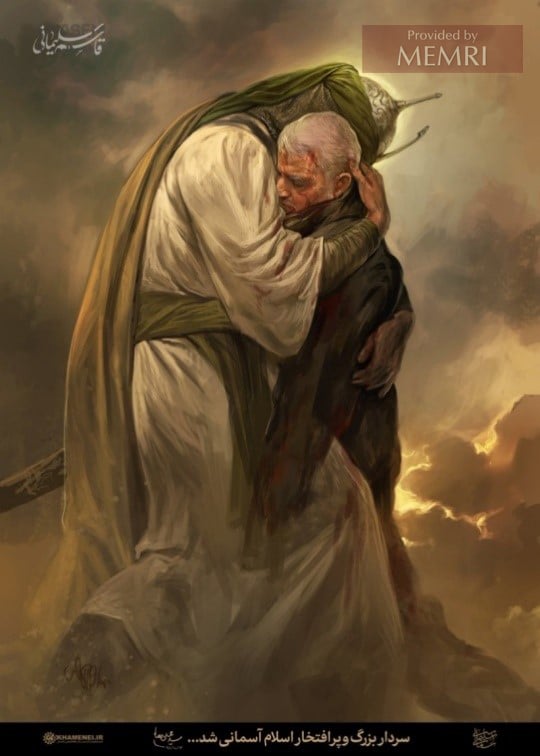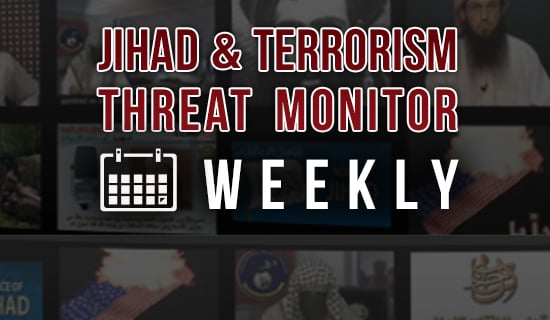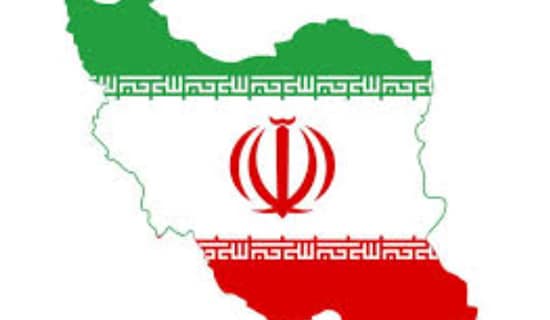The killing of IRGC Qods Force commander Qassem Soleimani, who was in charge of the Iranian revolutionary regime's military and political expansion across the region – Iraq, Lebanon, Syria, Yemen, and Palestine – was a severe blow to the Iranian regime and to the resistance front, and has had a profound emotional impact.
The Iranian regime's response was expressed in shows of deep mourning; Soleimani was beloved by Iranian Supreme Leader Ali Khamenei, who had considered him a son. It was also manifested in threats, mostly general in nature,[1] expressing outrage over the killing, which is perceived also as an insult to Iran's national honor and to the honor of Khamenei himself. There were regime calls for vengeance against the U.S. and President Donald Trump. As part of the government mourning campaign, cities hung red flags symbolizing vengeance, and put up billboards with messages promising retribution against the U.S.

Source: Iranian TV, January 6, 2020
Many official speakers emphasized Iran's right to retaliate.[2] Several IRGC commanders stated that Iran had the capability to strike U.S. bases in the region, to conduct surface-to-sea missile attacks against U.S. vessels and aircraft carriers in the Gulf and in the Strait of Hormuz, and to strike at oil exports to the West, and enumerated Iran's capabilities to respond militarily. Inter alia, they underlined that Iran's Shihab missiles have a range of 2,000 km, and that Iran had identified 35 vital U.S. targets in the region.[3] Others stated that vengeance would come in the form of an expulsion of U.S. troops from Iraq and the entire region.[4]
However, beyond the threats to strike U.S. or Israeli targets in the region and in the world, which were issued by officials in the regime's military-ideological branch, most of the calls for retaliation claimed that it would come from God, as expressed by the new Qods Force commander, Gen. Esmail Qaani; "from everyone," as President Rohani told Soleimani's family; or from the resistance forces in the region, as Hizbullah secretary-general Hassan Nasrallah said, and this would happen at some undetermined time in the future. Likewise, some stated that Iran was not heading towards war, among them Iranian Foreign Ministry spokesman Abbas Moussavi and Majlis National Security Committee spokesman Hossein Naqavi Hosseini, along with one of Khamenei's advisors, former defense minister and senior IRGC official in Lebanon Hossein Dehghan.
In response to President Trump's threat to respond harshly to any Iranian retribution for Soleimani's killing, several top IRGC officials warned, apparently in an attempt at deterrence, that Iran was capable of "flattening Haifa and Tel Aviv," or of striking U.S. aircraft carriers and bases from Yemen to Bahrain.
It should be noted that IRGC officials have in the past threatened to strike Haifa and Tel Aviv if the U.S. dares to act against Iran, but that this threat was not carried out immediately after Soleimani's killing. IRGC political division director Yadollah Javani said on Revolution Day, February 11, 2019, that "America has no courage to fire even one bullet at us – despite all its military assets... but if they do attack us, we will flatten Tel Aviv and Haifa."[5]
Ali Shamkhani, advisor to Khamenei and secretary of Iran's Supreme National Security Council, clarified that the response to Soleimani's killing would not necessarily be military in nature. Indeed, Iran announced, on January 5, as part of its fifth step in its withdrawal from its obligations from the JCPOA nuclear agreement,[6] that it "discards" its commitments under the agreement, stating: "[T]he Islamic Republic of Iran's nuclear program no longer faces any operational restrictions, including enrichment capacity, percentage of enrichment, amount of enriched material, and research and development. From here on, Iran's nuclear program will be developed solely based on its technical needs."[7]
It should be emphasized that Iran has refrained from announcing that it is withdrawing from the JCPOA itself, which, through UN Security Council Resolution 3321, gives it the right to enrich uranium and grants it nuclear status. Therefore, this does not mean that Iran is quitting the JCPOA – it only means that it is leveraging the killing of Soleimani for a significant political achievement: freely jumpstarting and accelerating its nuclear program without any restrictions, while remaining under the umbrella of the agreement – which it is violating it in broad daylight and under the oversight of the International Atomic Energy Agency.
As part of its campaign of mourning for Soleimani, the regime also continued its official, government, and religious operation to lionize him as "the marshal of Islam," in charge of founding and building the revolutionary Shi'ite empire – almost to the point of canonization. The funeral process of Soleimani the martyr set out from Karbala, where Imam Hossein was murdered and martyred in 680 CE and became a symbol of Shi'ite sacrifice and jihad in Shi'ite revolutionary thought. Soleimani, who had a year ago been awarded Iran's top heroism award, the Dhulfiqar – the sword of the Imam Ali – by Khamenei, was now posthumously promoted by Khamenei to the rank of lieutenant general – the highest rank in the armed forces of revolutionary Iran. Khamenei's office circulated an illustration depicting Soleimani being received into heaven, apparently by the Imam Hussein himself. The illustration was captioned: "The great general, filled with the glory of Islam, ascends to heaven."

Twitter.com/ghasemsoleimane, January 3, 2020
In conclusion, it should be emphasized that part of the Iranian rhetoric also expresses an attempt at intimidation and bargaining vis-à-vis various international elements so that they would mediate between Iran and the U.S. with the aim of preventing a critical U.S. strike on Iran and on the Iranian regime, as President Trump has threatened. Likewise, the Iranian threats are aimed at obtaining, in secret diplomatic negotiations via Switzerland and other countries, a significant achievement such as a U.S. withdrawal from Iraq in exchange for no retribution by Iran.[8]
So far, this attempt has not borne fruit, and the U.S. president has not responded to the Iranian demand. On the contrary, President Trump has threatened Iraq with sanctions in response to the Iraqi parliamentary decision to expel U.S. forces from the country.
The upcoming reports in this series will detail the reactions in Iran.
*A. Savyon is Director of the MEMRI Iran Media Project; Yigal Carmon is President of MEMRI.
[1] For example, on January 3, 2020, Khamenei tweeted that "severe revenge" awaited the Americans; the regime mouthpiece Kayhan daily wrote, on its January 5 front page, that "the Islamic Republic of Iran's response to the criminal American operation will be determined, swift, and regrettable."
[2] For example, Iranian Foreign Minister Javad Zarif said that Iran reserves the "legal right" to respond to the killing "in the right place, at the right time, and in the manner that it sees fit." PressTV, Iran, January 3, 2020. Similar statements were made by Iranian President Hassan Rohani. Rohani's website, January 3, 2020.
[3] IRGC Tharallah Division commander in the city of Kerman Gholem Ali Abu Hamza, Mehr, Iran, January 4, 2020.
[4] Gen. Amir Ali Hajizadeh, the commander of the IRGC's Aerospace Force, said: "Revenge for the blood of Soleimani will be the expulsion of the Americans from the region and purging it of the filth of the Americans." SNN.ir, January 6, 2020. Also, Qods Force commander Esmail Qaani said: "The consequences of killing Soleimani will come in a series of steps: expulsion of the American forces from the region and advancement towards establishing an Islamic regime in the world." SNN.ir, January 6, 2020.
[5] IRNA (Iran), February 11, 2019.
[6] See MEMRI Inquiry and Analysis No. 1481, Even As UK, France Acknowledge That Iran Is Violating The JCPOA, The Trump Administration, After Ostensibly Withdrawing From It, Continues To Preserve It – By Means Of Its Waivers For Civilian Nuclear Cooperation With Iran, November 6, 2019.
[7] Mehr, Iran, January 5, 2020.
[8] Foreign Minister Zarif said on January 3 that the U.S.'s killing of Soleimani had paved the way for the U.S.'s "elimination" from the region and that this was "the beginning of the end of its presence in Iraq." Press TV, Iran, January 3, 2020.




